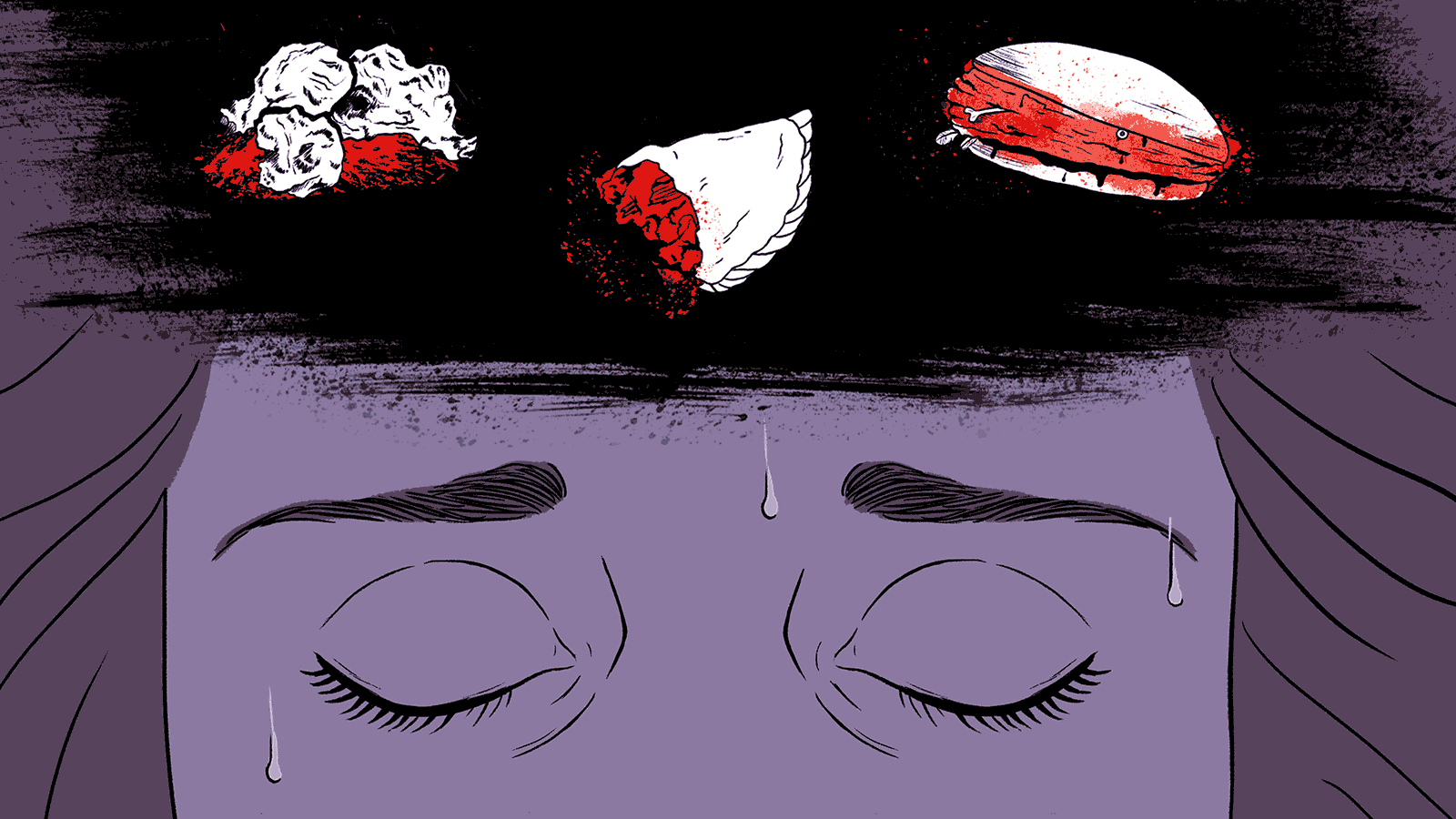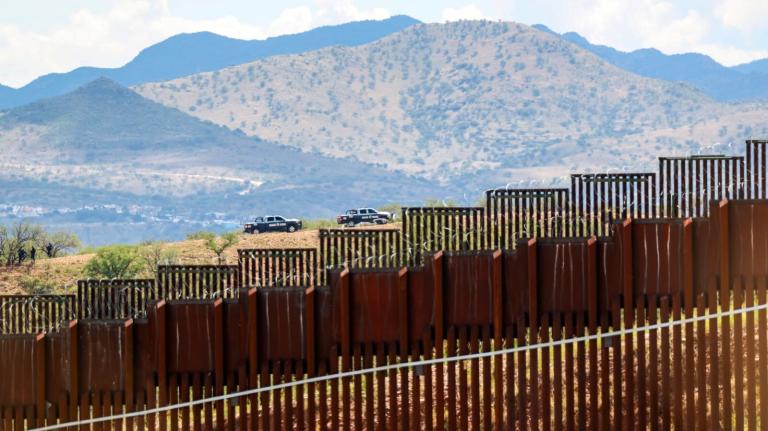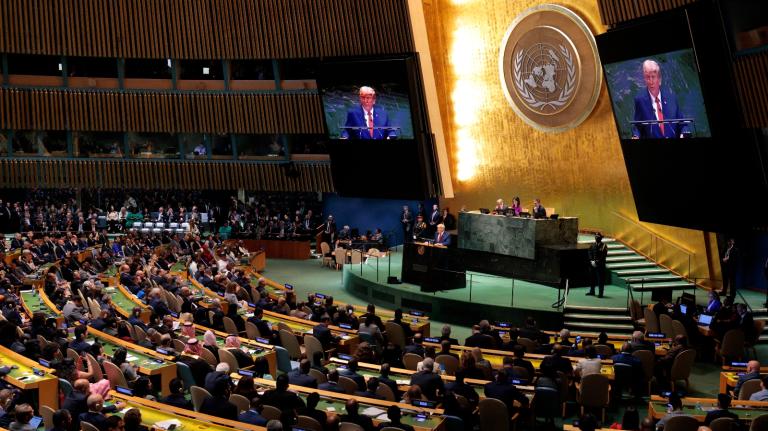One night, it came to me in my dreams, dripping juice and melted cheddar, the crisp lettuce a mere afterthought. I held it in my hands and took a bite.
Instant horror: I stared at the burger like it was an alien object as the realization that I’m a vegetarian stopped me cold. I woke up deeply disturbed. The mere unconscious thought of taking an eager bite of red meat felt like a personal failure.
I had just had a meatmare. Yes, I found out with just a bit of online research, that’s a real thing. The internet is crawling with accounts of vegans and vegetarians who dream of eating bloody steaks, burgers, bacon, tuna, and pepperoni-tainted pizza.
Although you can find these tales sprinkled across our collective social media consciousness, I couldn’t find any good answer for why they occur. Some people ascribe it to guilt at clean-eating imperfection; others to deeply buried carnivorous cravings.
What, I wondered, would make me dream of eating flesh again after a decade of vegetarianism? I set out to solve this meaty mystery and determine whether there’s a deeper meaning behind it.
No psychologist has clinically studied meatmares, according to a spokesperson at the American Psychological Association. But from what I’ve found, there’s clearly a lot to untangle. I consulted experts in food studies, cultural anthropology, and psychology to help shed light on what meatmares might tell us about social anxiety, guilt, and our culture’s preoccupation with meat.
I had my reasons for giving up meat 10 years ago: environmental concerns, distaste for animal suffering, an unfortunate gob of gristle in a frozen sausage. In my investigation, I met other vegetarians who, like me, have only remembered mid-dream that they don’t eat meat. They wake up feeling guilty, appalled, and ashamed, occasionally even crying or screaming.
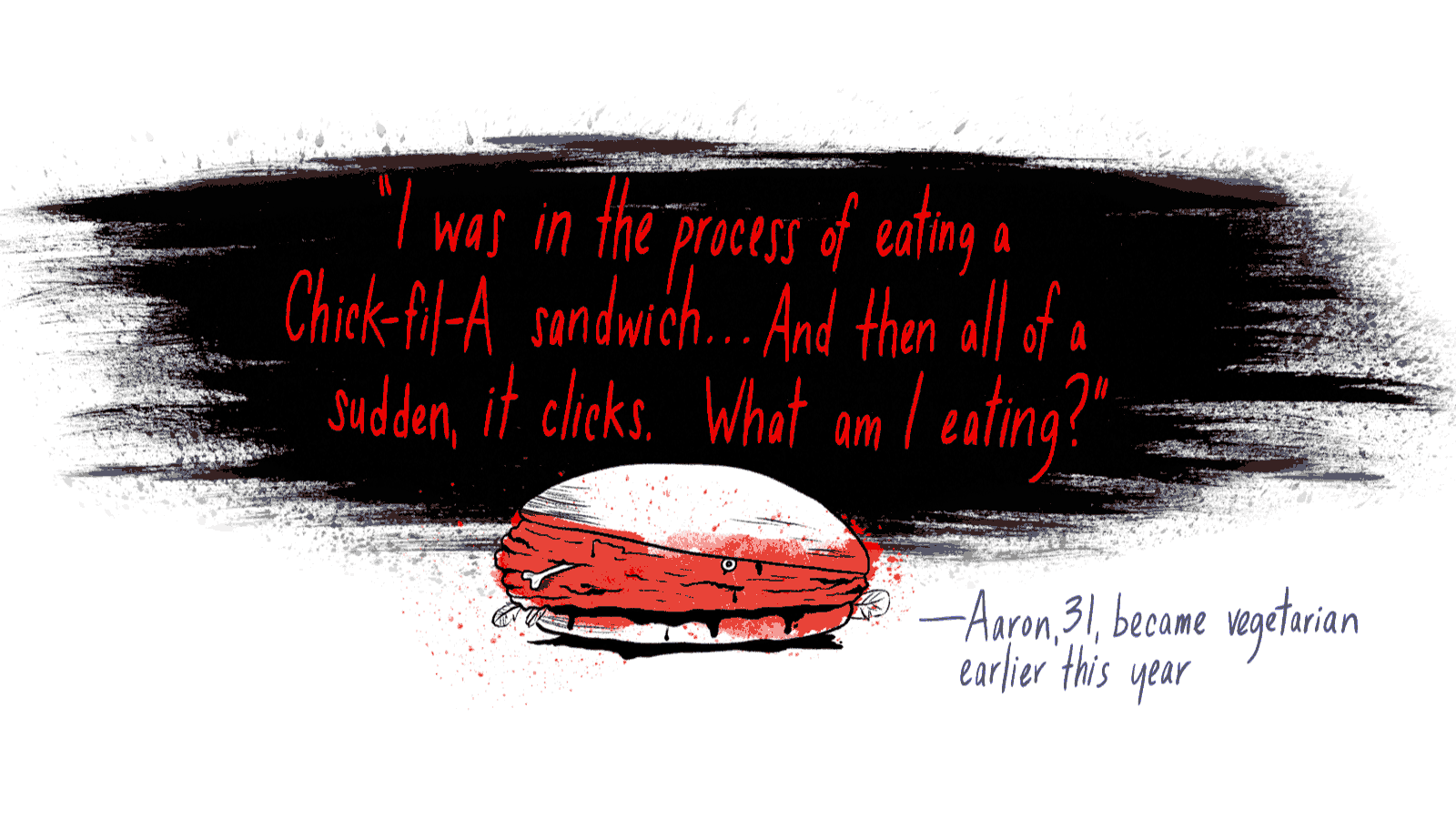
Grist / Amelia Bates
“It makes perfect sense to me that there would be meat nightmares, as opposed to broccoli nightmares,” Amy Bentley, a food studies professor at New York University, tells me over the phone. “Broccoli is just not a substance that people are going to have as much tension and anxiety over.”
Meat is often a key component of social events and celebrations: weddings, potlucks, Thanksgiving dinner. Vegetarians and vegans are constantly confronted by the choice of eating meat, and they routinely have to ask for accommodations and explain the rationale behind their diet.
“You’re forced to think about it all the time,” Bentley says. “You can’t forget that you don’t eat meat.”
Anxiety around these encounters, especially when someone first makes the switch to vegetarianism, Bentley says, could explain why meat keeps turning up in dreams, which serve as a mental means for people to replay and work out experiences they had during the day.
Steven Pinker, an author, cognitive scientist, and psychology professor at Harvard, has a different but complementary theory. “People often dream about lapses in self-control or everyday vigilance,” he wrote me in an email. Meatmares, to him, sounded like the “dreamtime version” of a symptom of obsessive-compulsive disorder called “horrific temptations.”
That’s the fear that, as a perfectly law-abiding and conscientious person, you might push someone off a subway platform. “It’s something that the patient would not do in a million years, but the more they worry about how terrible it would be if they did it, the more they can’t stop thinking about it,” Pinker wrote. “It stands to reason that this would obsess some number of vegetarians and vegans and perhaps invade their dreams.”
This obsession could have roots in a preoccupation with food as a moral choice. Ruby Tandoh, a British baker and author, has written at length about her obsession with “pure eating.” She cut out meat, fish, dairy, eggs, and processed food — a habit that devolved into a damaging eating disorder.
“Every dinnertime, I sat back in my seat and watched everyone else tuck into their meals, content in the knowledge that I couldn’t eat, so wouldn’t eat,” she wrote in an essay for Vice. “I thought about food all day; I woke up at night thinking about sausage rolls, pizza, and roast chicken with crisp, lemon-rubbed skin.”
For that essay, Tandoh spoke with Nigella Lawson, a British chef and writer, who told her: “[Clean eating] necessarily implies that any other form of eating — and consequently the eater of it — is dirty or impure and thus bad.”
This isn’t to say that vegetarianism begets an eating disorder. It doesn’t. But it does suggest that there’s absolutely a psychological element to the choice to forgo meat — to opt out of the norm. And our subconscious knows it.
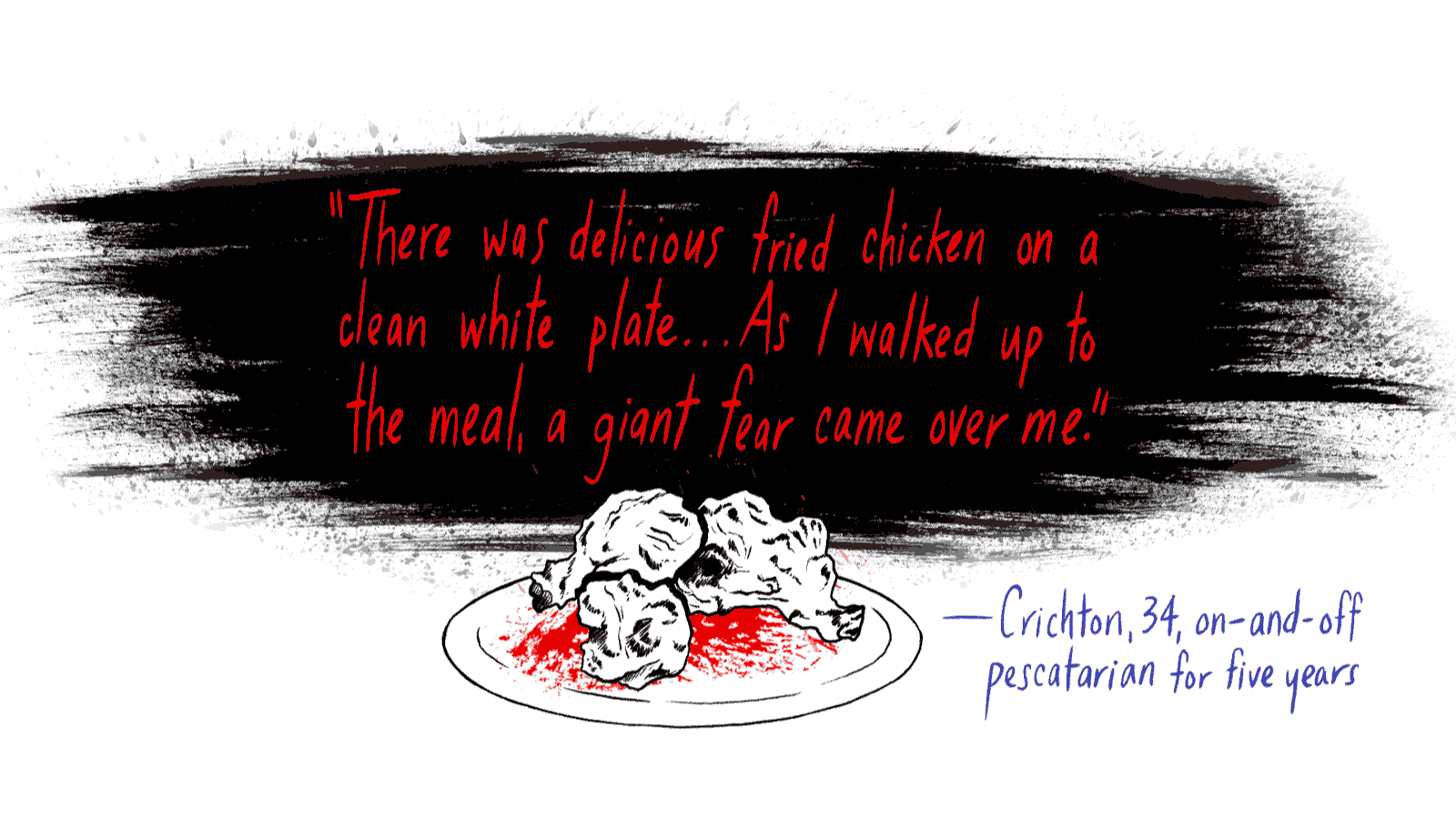
Grist / Amelia Bates
Walk around the world as a vegetarian for a day, and you will realize that meat is everywhere. Fleshy slabs hang behind the deli counter at your grocery store; the smoky aroma of your neighbor’s cookout wafts through the window.
Vegetarians and vegans get the message: To be a normal person, you have to eat meat. And lately in popular culture, the crazed behavior of a vegetarian gone off the rails appears more and more often.
In the critically acclaimed French-Belgian horror film Raw, released last year, protagonist Justine, a lifelong vegetarian, is forced to eat raw rabbit kidney as part of a hazing ritual at veterinary school. She discovers she has a taste for flesh — including, of course, of the human variety.
The Vegetarian, a prize-winning South Korean novella by Han Kang, explores the exact opposite trajectory. The main character, Yeoung-hye, is unable to sleep at night, haunted by nightmares of blood, flesh, and carnage. She throws out all the animal products in her house and goes vegetarian.
But as Yeoung-hye tries to distance herself from the violence associated with eating, she wastes away, losing so much weight that her bones begin to protrude. She eventually begins to believe she has become a plant, and ends up in a psychiatric hospital. As her mother warns her early in the book: “Stop eating meat, and the world will devour you whole.”
These are fictionalized extremes, but they reflect the scrutiny that real-life vegetarians face, both for quitting meat and for breaking their own rules. Eventually, 86 percent of vegetarians return to meat, according to 2014 study from the Humane Research Council, and 43 percent say that they find it difficult to keep their diet “pure.”
“It’s so frustrating to me that a vegan who will occasionally eat animal products is often referred to as a cheater,” says Brian Kateman, founder of the Reducetarian Foundation, which aims to help people cut back on meat consumption. “Or a vegetarian who eats meat when they’re drunk is lazy. But the word that we use to describe everyone else is ‘omnivore,’ which is actually way kinder.”
There’s a reason that vegetarians face this kind of double standard. Carnism is the ideology that conditions us to eat animals and justifies that behavior, according to vegan psychologist Melanie Joy, who has had meatmares herself. Like any dominant cultural belief, there’s a tendency to ridicule those who challenge it.
It’s why you hear the phrase “militant vegan” and see a joke like “save a cow, eat a vegetarian” on a bumper sticker.
“Carnivores are never expected in our culture to be equally as accommodating, even a fraction as accommodating, as our vegetarians and our vegans,” says Samuel Boerboom, author of The Political Language of Food. He blames meatmares on the fact that it’s so difficult for vegans to gain acceptance.
“A meatmare is obviously something punitive, something that hurts, something that causes pain,” Boerboom said. “It’s the culture’s way of getting back at you and calling into question the decision to reject meat.”
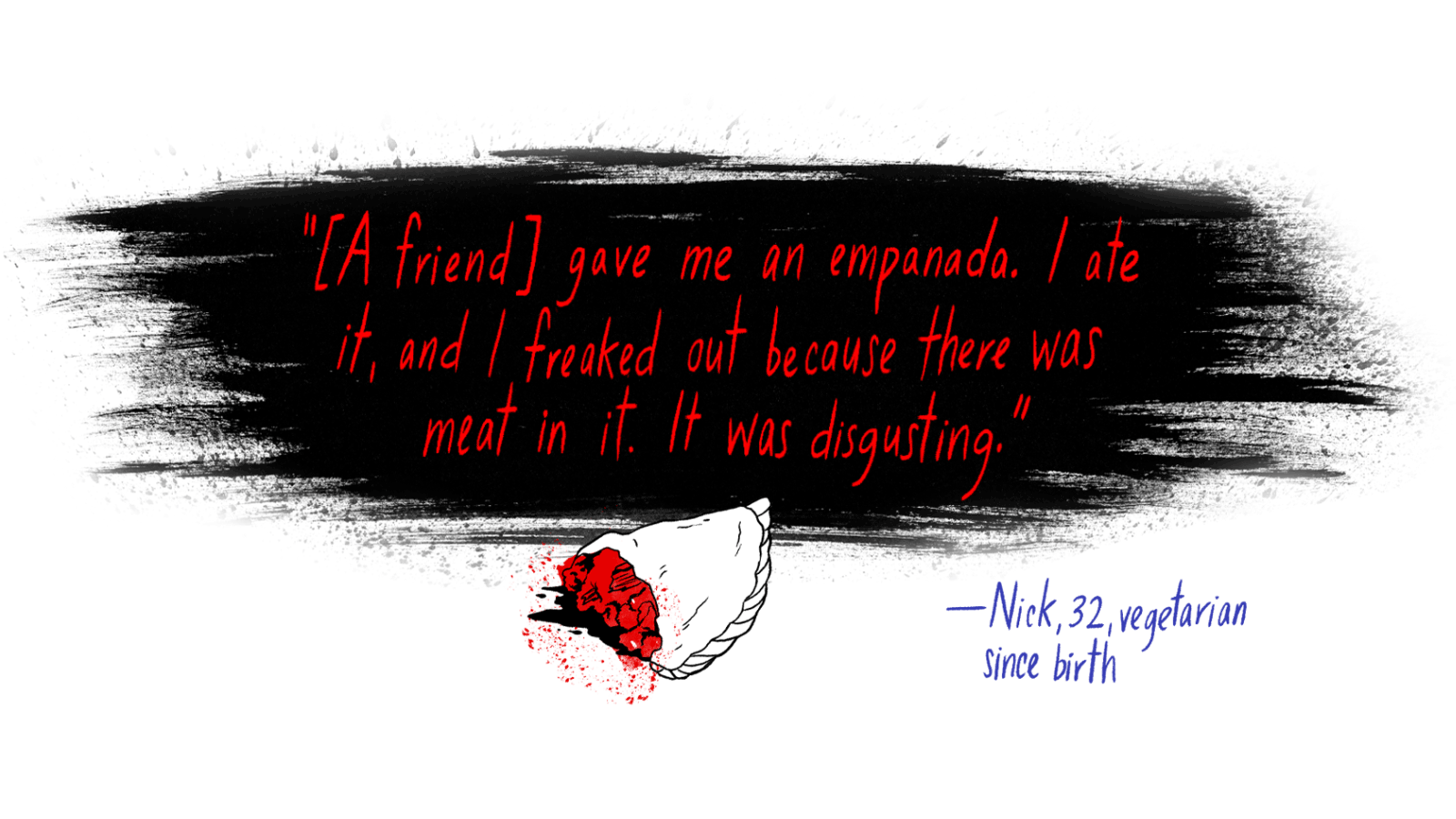
Grist / Amelia Bates
We all struggle with food and the way it affects our bodies, our social lives, and our planet — and for some, our dreams.
“I don’t want to pathologize vegans,” Joy says. But she does think there’s something to the notion that meatmares might stem from vegans processing some sort of trauma through their dreams, including guilt for having eaten meat in the past.
To alleviate some of that feeling, she says, don’t expect perfection of yourself or the people around you. “Recognize that good people participate in harmful practices, and that doesn’t make them bad people.”
The food choices we make are shaped by culture, fashion, and tradition — and, of course, our cravings. We can’t entirely escape our animal nature.
Perhaps that’s why, years later, I’m still stuck on a simple nightmare about a cheeseburger. It encapsulated a tug-of-war between body and mind: The impulse to bite into that burger was unwelcome, and it tested the strength of my self-control. Temptation won out — and I woke up feeling terrible about it.
But the dream only reinforced my sense that the reward wasn’t worth the repercussions. Maybe, to stick to their goals, those who have forsaken meat simply need to dream of eating the stuff.

